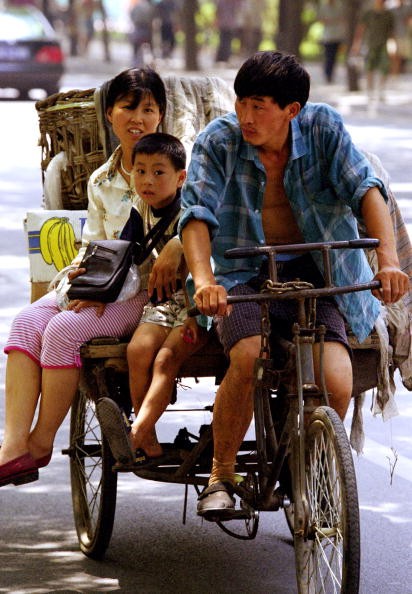China just abandoned its one-child policy after 35 years since it was put in place in 1980. Beijing, after a meeting of the Community Party on Thursday, said it would allow all couples to have two children.
However, population experts say that the change in policy is one decade delayed. University of North Carolina professor and an expert in Chinese demography Cai Yong says he is pessimistic about the policy change because it came too late, reports The Wall Street Journal.
The main concern of Chinese couples is the rising cost of living. A second child could strain the budgets of households that are trying to make ends meet. Thus, despite the change in policy, Li Shuning, a 32-year-old bank worker in Shanghai and a mother to a one-year-old child, says she would not have another child. "I can't imagine who would have the energy to raise another child," she wonders.
Her concerns are not without basis. According to ThinkProgress, another child would cost $3,700 a year. It is about 43 percent of the average household income. Given the slowdown of the once red-hot Chinese economy, many couples would likely share Li's outlook when it comes to having a second child.
Washington Post reports that among the reasons why Beijing changed the policy is concern over potential manpower lack and the country's senior population which would place more strain on the Chinese economy. The change comes just days after a Chinese economist suggested that poor Chinese men be allowed to share a wife because of the gender imbalance in the country also caused by the one-child policy.
Wang Feng, an expert on Chinese affairs at the University of California at Irvine, says that the negative impact of the 35-year harsh policy - relaxed in 2013 - would take one generation or longer to filter through. "But China for decades to come will have to live with the aftermath of this costly policy," he says.
China's fertility rate is now estimated to range between 1.4 and 1.7 child per woman. It is significantly lower than the fertility rate in the US and many developed nations.
According to official data, there was a third consecutive year of a reduction in China's working age population in 2014 by 3.7 million to 916 million. The drop is expected to accelerate in the coming years, while the number of Chinese becoming seniors, or 60 years old and above, would be almost 400 million by early 2030s, based on UN forecast. Its implication is that Chinese senior citizens would comprise one-seventh of the country's population.
Fudan University population professor Peng Xizhe says while the reform would slightly slow down the graying of Chinese society, it would not reverse it. "It will ease the labor shortage in the long term but in the short term it may increase the shortage because more women might stop work to give birth," Peng explains.
But majority of Chinese couples are now content with one child, says investigative journalist Dai Qing in an op-ed for the New York Times. He writes, "Apparently, many young urbanites no longer agree with the traditional view that 'duo zi duo fu' or 'the more children (sons) a couple have, the happier and more secure they are.' They see big families as a hindrance to their dreams of living an affluent middle class life."



























